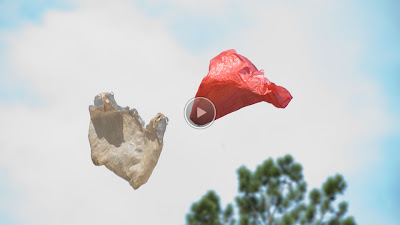Washed up FlipFlops

Here's a bit of good news. We've all seen them. Discarded flip flops washed up on beaches. Well, in several places around the world like Kenya and the Philippines they are collected and crafted into doormats and toys the sales of which are actually supporting many local economies. Here's the info below:
Flip flops: Inexpensive. Everywhere. Easily replaceable. But where do old flip flops go when they die? And what happens to the excess foam rubber from flip flop factories? There is actually an interesting (and sustainable) answer out there.
Many products on WorldofGood.com are made by cleaning and reusing material that were discarded as trash. Colorful handmade doormats keep foam rubber wastes out of landfills by transforming them into tough but lightweight doormats. The mats are lightweight and durable, constructed by hand using galvanized metal and scrap flip flops that would have otherwise gone to landfill.
Here's another scenario you can read about: On the islands of the Lamu Archipelago, off Kenya’s northern coast in the Indian Ocean, artisans use flip flop debris that washes up on the shore to make crafts - useful ones, too, including handbags, lampshades, hair clips, necklaces, toys, and curtains.
These upcycled flip flop products are an inspiring glimpse into the small yet important solutions to the giant issue of marine debris.
Labels:
plastic ocean,
plastic pollution,
recycled art
FUTURESTATE: Plastic Bag by Ramin Bahrani

Existential, poetic and provocative, the journey of a plastic bag like you've never seen before. Glimpse into a life of the most ubiquitous thing on earth. Voiced over by the ever intriguing Werner Herzog.
Labels:
plastic bags,
plastic ocean,
plastic pollution
Fake Plastic Fish's 2009 Plastic Resolution
Here's my inspiration in action! Beth Terry shows the real ways we can all make a difference in our home environment. I've implemented some changes this year: all tips from Beth that have reduced my garbage load. Here are just a few:
1.I make my own soy milk now thus taking about 52 cartons out of the land fill each year.
2.Started composting all our food scraps.
3.Make an effort to purchase bulk foods like cereal and rice to cut down on packaging.
4.On top of bringing my own bags for shopping I also have some great reusable produce bags. Stopped using plastic bags entirely.
5.Select products not packaged in plastic if there is a choice.
6. Started this blog to help spread the word.
Thank you Beth for helping us all to become more plastic aware!
1.I make my own soy milk now thus taking about 52 cartons out of the land fill each year.
2.Started composting all our food scraps.
3.Make an effort to purchase bulk foods like cereal and rice to cut down on packaging.
4.On top of bringing my own bags for shopping I also have some great reusable produce bags. Stopped using plastic bags entirely.
5.Select products not packaged in plastic if there is a choice.
6. Started this blog to help spread the word.
Thank you Beth for helping us all to become more plastic aware!
Labels:
Beth Terry,
plastic pollution,
Reducing plastic use
Subscribe to:
Comments (Atom)




